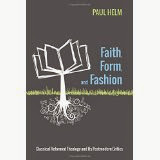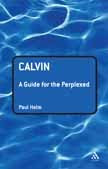FOREWORD
The new book may be thought of as an exercise in consistency, or better
in Christian integrity. None of us have any difficulty in finding warm and
comforting words from the Bible: Psalm 23, or Jesus’ Sermon on the Mount, or
the way Jesus welcomed children, or fed the hungry and healed the sick. But the
Bible has a darker side. Not only Jesus’ kind words and deeds, but his anger,
his driving men from the Temple with a hand-made whip, his pointed remarks
about the division his teaching will cause, and his statements on Hell as well
as on Heaven, for example.
In this book Melvin is dealing with this darker side. If the Christian
teaching about the Bible being one book, with one overall theme or message, is
true, we must not overlook its darker side. The
darker side of Jesus’ ministry, but also the deeds of the ‘God of the
Old Testament’. In a day when the Bible is dissected by the critics, or divided
by specialists, this in itself is a welcome emphasis. The Bible is the one word of God, and its
entirety is to be taken seriously and faced honestly. The darker side cannot simply
be brushed under the carpet. Apart from anything else, this is simply to push the
culture further away from the sunnier side of its teaching. For as was aptly
said, ‘If you belittle the disease you belittle the physician.’ The Lord our
God is one Lord. Integrity demands that we form a consistent judgment of both the
shadows and the sunshine.
Preparatory to this, we need to be reminded of God’s character. Any
attentive reader of the Bible can see that it is impossible to make sense of it
without the idea that God has a mind of his own. He is not simply the rather ineffective
help to satisfying the latest desires of men and women. In any case, these are
constantly shifting, with an ever-enlarging portfolio of ‘rights’ to benefit
from. God is not a human agent, not even
a human prime minister or president or business leader, but our Creator and Lord.
He is not driven by his desires to please us, but is just and holy. Because of this
his love, disclosed in his covenant with Abraham and in Jesus the Mediator of
the Covenant, is not moody, but deep and unwavering, rooted in his own
unchanging character, and involving the humiliation and death of God incarnate.
God did not spare his Son but delivered him up for us all.
God has a plan. Much of the detail of this plan is hidden from us, but it
is clear that it involves the choice of a people, the people of Abraham, Isaac
and Jacob, and of blessing of them through a gracious covenant. This
arrangement both allows for the people’s
chastisement if and when their fidelity to the covenant falters, and their
protection from the attacks of surrounding nations intent on snuffing them out.
Paul, the Apostle to the Gentiles, says that in the Old Testament the people of
God were under age, ‘under guardians and managers’ while being surrounded by
bitter enemies. Both the correction and
protection of his people required that their God undertook acts of holy discipline and
destruction.
In other words, Melvin is arguing from the Bible itself, that it is
necessary to contextualize the darker side of things. These are not isolated events
which show us that God, is capable of losing his temper, or of being vicious
and bloodthirsty. This is not how the destruction of the Canaanites is to be
seen. Rather they are instances of his protective care of his people, just as the
disobedience of his own people has to be visited with the
destructive-corrective action of God. These are parts of one consistent
picture, what Melvin refers to as the non-partisan action of God. Not an isolated
case of bullying or of loss of composure, but the understanding of God as ‘the
judge of all the earth’ who ‘does what is just’. Though God is high and lifted
up, nonetheless he has a deep commitment of grace and love to his
unprepossessing people. The nations surrounding Israel were not pure and
innocent, but idolatrous and abominable. Their actions revealed their detestable
character, calling for righteous
punishment.
God does not suddenly grow up, as if the caterpillar of the Old Testament
becomes the butterfly of the New Testament. However, his revelation does
develop from being focussed exclusively on Israel to his concern for the
international church of Jesus Christ. This is the true, the full, ‘Israel of God. ’It
is in Jesus Christ, the Suffering Servant, that we see God’s wrath and grace best
refracted.
To spell out these dark themes in some detail is characteristic of the
courage and commitment to the truth that is Melvin’s outlook. Some of this
makes uncomfortable reading, but then Melvin’s aim is not to ‘speak to us smooth words….illusions’, but
to be faithful to the God of Israel and the Father of our Lord Jesus Christ. As
he says, both Testaments portray ‘God in his
holiness as implacably opposed to all sin which issues in judgment, and yet in
his love he shows mercy which calls for repentance’.









